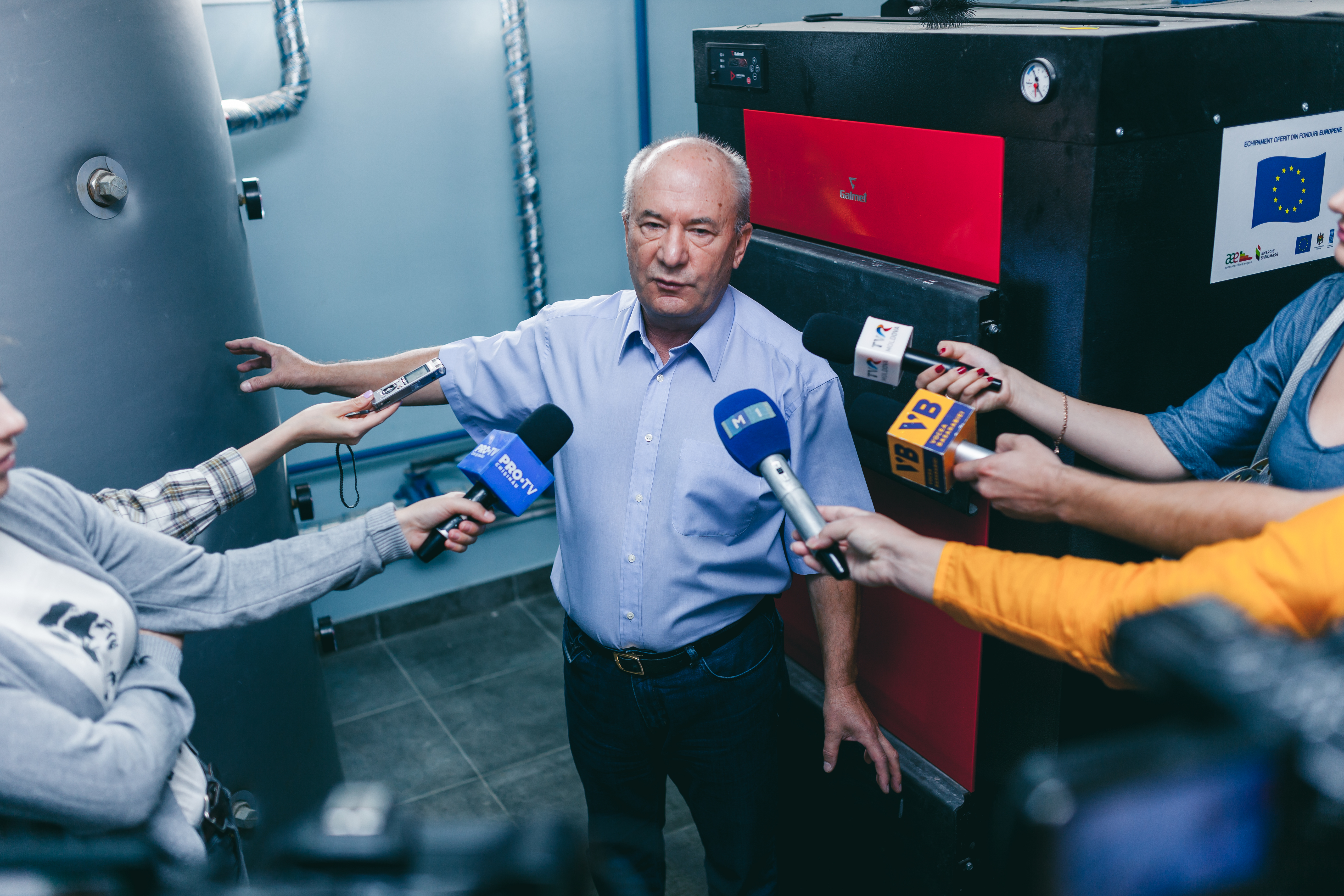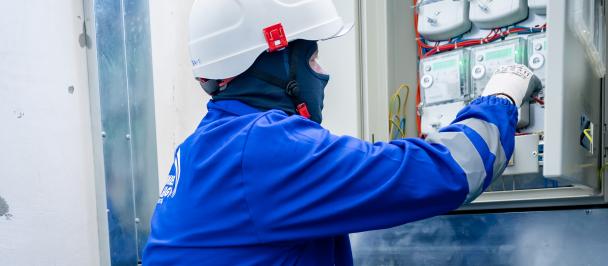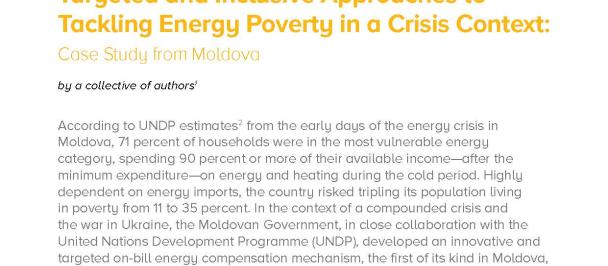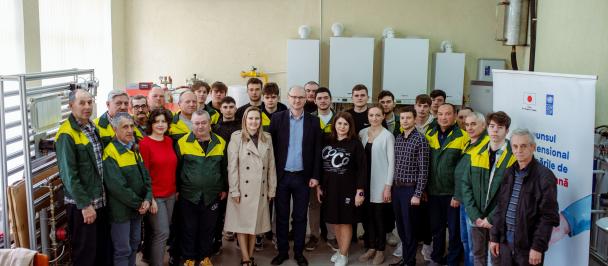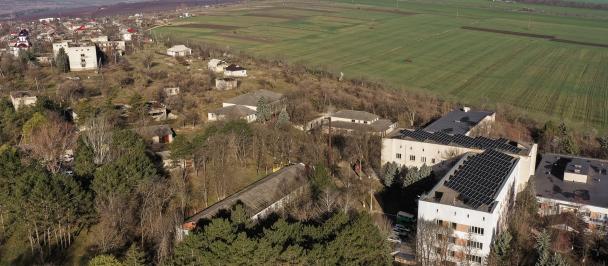The kindergarten in Horesti, Ialoveni, switched from natural gas heating to clean energy. Starting with this autumn, the heat in the institution will be provided by biomass, and hot water – by solar energy. Over 230 children and 30 employees will benefit from better conditions. The investment was possible thanks to the financial support of the European Union provided by the Moldova Energy and Biomass Project, implemented by the United Nations Development Programme.
The old heating system in the Horesti kindergarten was archaic. Its capacity – of only 100 kW – could not ensure a constant temperature in all rooms of the kindergarten, with a total area of about 2,000 square meters. When the weather was frosty, all they could get in the rooms of the kindergarten was a temperature of 16 degrees Celsius. So, they had to connect electrical heaters. Hot water was produced with the help of electricity, five boilers being installed for this purpose. Even if electricity bills reached astronomical sums, still there was not enough hot water.
To solve this problem, the local administration applied for a European grant, and with the money raised – 60,294 EUR – installed advanced technology, based on solar energy and biomass. In the cold season, the heat in the institution will be provided by solid biomass fuel (sawdust and compost briquettes), and solar energy will heat the water. The technological scheme allows for the connection of the hot water circuit to the thermal power plant’s circuit, for situations when energy emitted by solar radiation is insufficient. The European investments were used for the construction from scratch of a building to host a high performance thermal plant and for the purchase and installation of two boilers with a total capacity of 250 kW, as well as a set of six solar collectors. With the help of the community contribution – 14,937 EUR, the design works were carried out, the biofuel deposit was built, and reparation works inside the kindergarten were done.
The biomass heating will reach the kindergarten as the heating season starts, and the hot water from solar energy has already become available a few weeks ago. Employees of the institution say that the benefits of the new facilities are obvious. “We started feeling the comfort of having hot water anytime, without being concerned with the bills. In a kindergarten, hot water is not a luxury, but a necessity. Children need to wash their hands as often as possible, and we need hot water in the kitchen, to wash the dishes,” says Elena Condurache, interim director of the kindergarten.
Both the administration of the kindergarten, as well as the town hall say that this project benefits the community and especially the families who have children in the kindergarten. “Thanks to the support offered by the European Union, we managed to implement a project we have been dreaming about – to provide good conditions for children and kindergarten’s employees,” says the mayor, Petru Cigoreanu. He hopes that he will manage to access funds to bring clean energy to other social institutions in the locality as well: “We know that clean energy systems are not only eco-friendly, but also economically efficient. We have biofuel producers both in the locality and in the district. Thus, we will be able to support the domestic producers and we will contribute to environment’s protection. The savings we will get will be used to repair the kindergarten’s building and to ensure optimal conditions for children,” states Petru Cigoreanu.
The preschool institution in Horesti, Ialoveni, is one of the 265 kindergartens, schools, health facilities connected to biomass heating systems with the support of the European Union within the Energy and Biomass Project.
The Energy and Biomass Project, phase two, is a project carried out in 2015–2018, with a total budget of 9.41 million EUR provided by the European Union and is implemented by the United Nations Development Programme. It continues the first phase of the project (2011–2014), with a total budget of 14,56 million EUR, offered by the European Union (14 million EUR) and UNDP (560,000 EUR). The national partner of the Energy and Biomass Project is the Ministry of Economy and Infrastructure.

 Locations
Locations